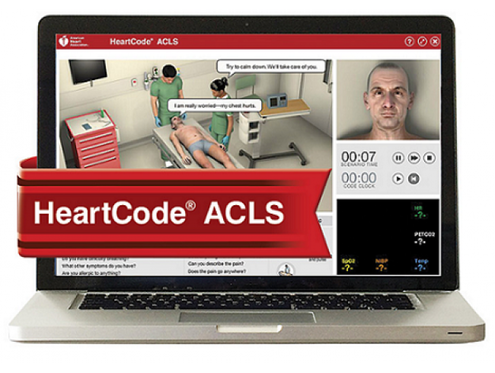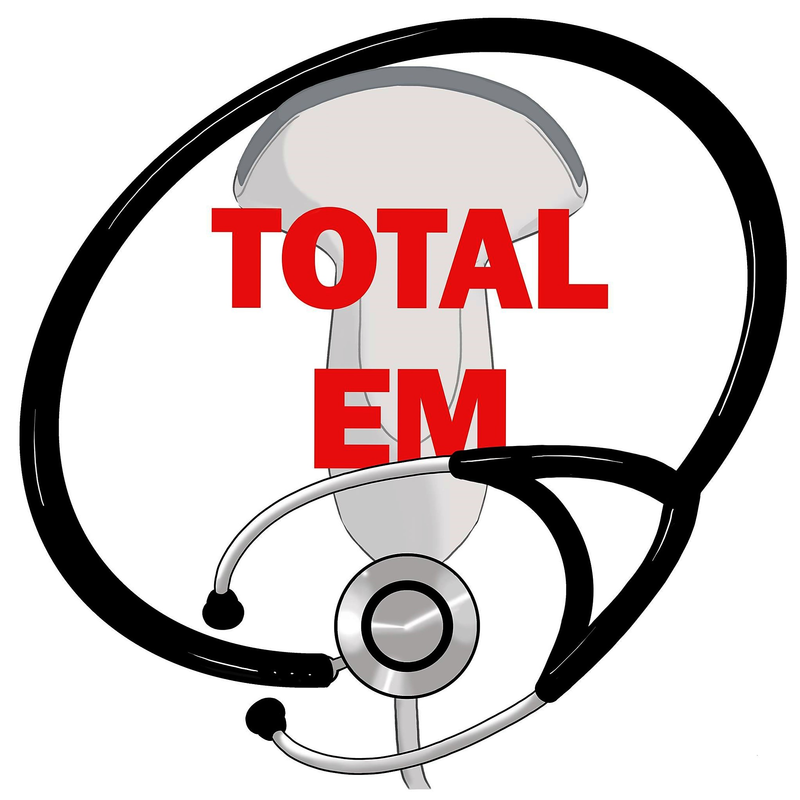|
How have you taken ACLS? Most of us will have taken a course in person but what if you are not able to do the course in person before your license expires? Do you take an online course and if so which one? In this podcast we review one option, HeartCode ACLS, and discuss the pros/cons of the course. As always, there is nothing to disclose as any of the courses and organizations mentioned do not have any financial ties with this author.
ACLS stands for Advanced Cardiac Life Support. It is a worldwide mainstay course of emergency medicine and critical care. Unfortunately, not everyone can attend a live course for whatever reason and there are now alternatives such as HeartCode ACLS (image taken from here). The website link and the podcast both mention a brief course description but essentially a "self-directed, comprehensive eLearning program that uses eSimulation technology to allow students to assess and treat patients in virtual healthcare settings." If this sounds interesting listen to both the podcast and read the show notes for the details.
First, we need to cover some of the main pros and cons to this online course. Pros: Allows for instant and detailed feedback Can be great for distance learning such as in rural or remote regions Able to go at own pace Retest ability seems less stressful Full course materials available online Cons: Sometimes difficult to access said materials Still have to go to in person for hands-on session to get full credit Very much self-directed even though it sticks with basics of ACLS Barely mentions what is new with the 2015 updates Simulations are interesting but still has flaws that need addressed 
Another point to consider is the cost. At this time, the cost is $132 which is not bad overall. However, a person who takes this course must still do a hands-on session which could incur either more direct or indirect costs such as paying someone and travel, respectively. Inexpensive alternatives do exist such as groups who provide very low cost courses either in your institution (which may be free) or other outlying facilities. In rural Missouri, it is often easy to go to Air Evac as they have inexpensive and usually well run courses that are done in person. There will be costs for travel and may even have to get a hotel, but the actual course can be in the $20 range.
As mentioned in the podcast, there were many updates in 2015. Unfortunately, there is little coverage from the HeartCode ACLS course. Luckily, groups such as CanadiEM have resources available to cover some of the major changes. CanadiEM includes an infographic series of all the major changes they noticed that are keys to practice. For a more complete list of changes consider checking the American Heart Association (AHA) directly at their site on updates. Feedback both on Twitter and from personal colleagues has the general consensus that HeartCode ACLS can be effective for the right audience. In the end, personal judgement and what seems to fit with each individual's personality is key. No matter what, ACLS is something that requires thorough investigation for those in emergency medicine and critical care. A one or two day course is not enough to fully grasp the more complex parts of ACLS. Have you taken HeartCode ACLS before? Did you like it? What do you feel can be improved? Give your feedback here or on the different sites we are located such as Twitter or Facebook. Remember to look us up on Libsyn and on iTunes. If you have any questions comment below, email at [email protected], or send a message from the page. We hope to talk to everyone again soon. Until then, continue to provide total care everywhere.
0 Comments
Leave a Reply. |
Libsyn and iTunesWe are now on Libsyn and iTunes for your listening pleasure! Archives
August 2022
Categories |
||||||


 RSS Feed
RSS Feed